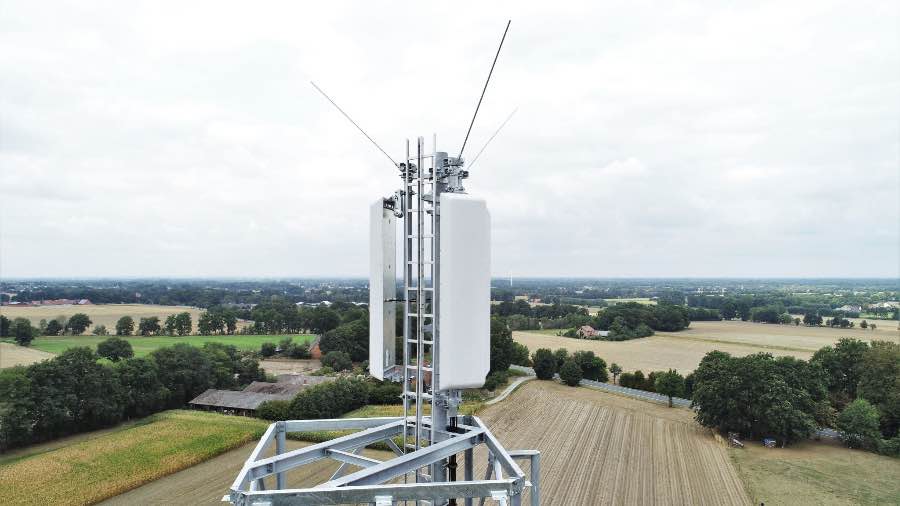
When conventional communication networks fail, the country comes to a standstill. Natural disasters, extreme weather, cyberattacks, or large-scale network disruptions can all be triggers. The 2021 Ahr Valley flood disaster showed the consequences: crisis teams were unable to communicate, and the operation of critical infrastructure was no longer possible in many areas. Likewise, the power outage in Spain and Portugal in April 2025 demonstrated how vulnerable modern societies are when public networks fail: rail and transport systems came to a halt, fuel stations had to close, cold chains in the food industry broke down, and mobile communication services were unavailable. In such extreme situations, an autonomous, highly available radio network determines whether those responsible for supply and safety can still operate effectively.
That is precisely why 450connect is building the nationwide 450 MHz radio network – primarily for operators of critical infrastructures (CIs) in Germany. With the commissioning of the 1,000th radio site, a major milestone has now been reached: the network already covers 90 percent of Germany’s land area and remains fully on schedule to achieve complete nationwide coverage by the end of 2025.
Joachim Groß, CTO of 450connect, emphasized:“We’re on the home stretch – a remarkable achievement by our entire team. We already cover 90 percent of Germany’s territory, ensuring reliable communication when it matters most – both during normal operations and in times of crisis.”
The German Federal Government, through its National Resilience Strategy implementation plan, has made clear that ensuring supply security and the resilience of critical infrastructure – including energy, water supply, transportation, and logistics – are top priorities. Blackout preparedness guidelines warn that communication links are often severely restricted or disrupted during power outages, posing significant risks to CI operators.
With its 90 percent coverage already achieved, the 450 MHz network from 450connect is now a key pillar of national resilience: it strengthens crisis preparedness, secures digital sovereignty, and provides the foundation for a resilient energy transition.
At the heart of this exceptional reliability lies the network’s 72-hour blackout resilience. Even in the event of a widespread power failure, radio services remain operational for at least three days. This ensures that operators of critical infrastructures – such as energy providers, water utilities, and transportation and logistics companies – remain fully operational even in crisis scenarios.
The 450 MHz network provides secure voice and data communications for a wide range of applications – from crisis and operational communications to smart metering and smart grid control. With this, 450connect not only guarantees supply security but also builds the technological foundation for digitalization and decarbonization in essential sectors.
“The energy transition requires stable networks – and we are ensuring that these communication networks function even under extreme conditions for which we must be prepared,” said Groß.
